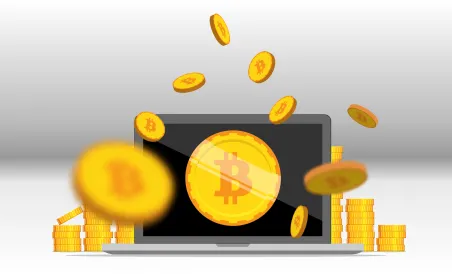Summary
As 2017 fades in the rear view mirror of the speeding car that is blockchain, five significant regulatory issues will likely be speedbumps for blockchain tokens in 2018. Pundits spend much time talking about blockchain tokens as an “asset class”; however, our admonishments about the need for contextual regulation still stand: we believe it is misguided to treat blockchain assets as if they are a monolithic group, ignoring the underlying features and functions that apply within each industry.
In Depth
As 2017 fades in the rear view mirror of the speeding car that is blockchain, five significant regulatory issues will likely be speedbumps for blockchain tokens in 2018. Pundits spend much time talking about blockchain tokens as an “asset class” distinct from equities, fixed income, swaps, etc. But our admonishments about the need for contextual regulation still stand: we believe it is misguided to treat blockchain assets as if they are a monolithic group, ignoring the underlying features and functions that apply within each industry. Simply put, because a blockchain token can represent any asset, each class of token must be evaluated separately from a regulatory perspective. We introduced this concept in Amsterdam on November 1, 2017.
Nevertheless, asset classes can arise as groups of tokens representing similar asset types become susceptible to categorization. For example, as issuers of stock move to the blockchain, an asset class of equity tokens will emerge. The same could happen to a class of tokens representing identity, event tickets, gaming rewards or health care records, to name a few. Cryptocurrencies seem to be the first identifiable class of blockchain tokens, acting exclusively or primarily as a means of payment. Think bitcoin. are targeted at this class of tokens.
We see the following major regulatory themes developing as token asset classes take shape:
- Trading Venues: 2018 will see the registration and regulation of trading venues for blockchain tokens, such as exchanges, alternative trading venues and other liquidity points. The applicable regulatory regime will depend on the class or classes of tokens (or related derivatives) and the characterization of the asset class will be vital to the analysis. Outside the United States, countries approach regulation in varying, even contrasting, ways. Japan, for example, has virtual currency regulations that may encompass trading in many different token types. On the other hand, China and South Korea currently ban or strictly limit trading in any type of token. In the United States, tension can arise between state and federal regulation; there are competing considerations for an entity registering as a broker-dealer or national securities exchange for securities or as a futures commission merchant or designated contract market for swaps and futures. Regulatory issues will become especially important as trading tools, such as algorithms and smart order routers, become more prevalent and venues seek to establish links to provide greater liquidity. Peer-to-peer trading, either directly on the individual blockchain or through platforms with no intermediary, will challenge existing regulatory notions.
The list above reflects a financial services perspective, but also reflects the current regulatory focus. If a token falls outside these boxes, trading may be regulated in an entirely different manner.
- Custody: Custody issues, both from a practical and regulatory standpoint, will require solutions during the next 12 months for both sell-side and buy-side firms. No single answer will emerge as paramount but the traditional financial services industry and the blockchain ecosystem will fashion custody solutions to satisfy regulatory requirements, even while blazing some new trails. These solutions will bring more conservative institutional players into the space, both allowing them to comply with regulatory requirements and, most importantly, creating trust that blockchain assets are safe. This will cause a bit of a conundrum for blockchain enthusiasts, who believe in the power of decentralization and keep wallets on many different blockchains to maintain their own tokens. But it will allow those who have less confidence in their technical abilities to embrace blockchain assets.
- Know Your Customer and Identity: As blockchain assets grow in popularity and trading becomes more centralized, identification of customers and counterparties will become integrated into the transaction flow. There is a temptation to forget about sanctions law requirements and to focus on anti-money laundering requirements. Regardless of the applicable requirements, prudential considerations will counsel players big and small to scrutinize who they do business with. Everyone should expect to be “carded” unless transacting solely peer-to-peer on the individual blockchain (at least for now).
- Regulation A+ Gets a Workout: In light of the US Securities and Exchange Commission (SEC) enforcement order in Munchee, token launch projects face interesting decisions. Many will sell tokens only outside the United States. Others will look closely at Regulation A+, which allows for a limited public offering under a regime created by the Jumpstart Our Business Startups (JOBS) Act. With the ability to raise up to $50 million and securities that are mostly freely transferable, projects will explore this offering type, notwithstanding the waiting period required for the SEC to “qualify” an offering.
One major downside of selling tokens through any securities offering: every movement of a security token constitutes a securities transaction, subject to the full panoply of US securities regulation. Another hurdle: how will non-US regulators view a token that is treated as a security under US law? Our network of non-US lawyers have started to consider this issue.
- Global Coordination: Although their regulatory regimes differ in substantial ways, we expect increased coordination among national regulators as they recognize that blockchain platforms are cross-border in ways rarely seen before. If anyone with a computer can participate regardless of their location and intermediaries are unnecessary, peer-to-peer transactions will simply happen. Government attempts to address digital activities will face technological challenges as well as privacy issues. Accordingly, regulators should embrace the movement to open source these technologies. Free discussions on platforms like GitHub, Reddit and Medium will aid regulators, providing unprecedented access to information. Like all market participants, regulators will also need to continually develop new methods of coping with this real-time world. Regulators should bring to the party thoughtfulness, openness to new ideas and a willingness to collaborate.
Blockchain technology is having a moment. With proper care and curation from all participants, this movement should create new opportunities and great value in the world economy.
David L. Taub, Lilya Tessler, and Verity A. Van Tassel Richards contributed to the post.




 />i
/>i
